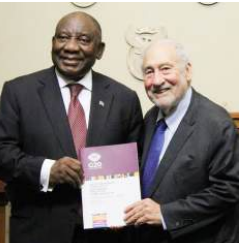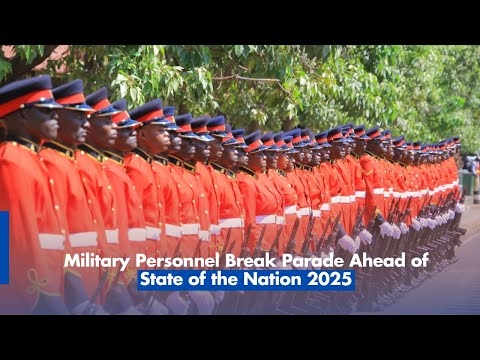
As South Africa plans to welcome heads of state from across the world for the ongoing G20 Summit, thousands of activists are planning to host a parallel forum to compel leaders to bridge the gap between the poor and the rich.
Dubbed the 99 People’s Summit for Global Economic Justice, the forum that kicks off on Saturday has attracted 10,000 participants globally and seeks to serve as a public platform for global dialogue on economic justice.
“This historic gathering draws participants from over 40 countries. Key sessions will focus on debt relief, tax justice, climate finance, women’s labour and fair development,’’ organisers said in a joint press statement.
“We are the people who feed, care for, and build the world. We are the displaced people, communities trapped in debt, and overworked mothers. We are the ones who keep things running while others take the profits.”
The two-day session by the Fight Inequality Alliance Kenya (FIA Kenya) is worried that the G20 continues to operate within an economic framework that deepens inequality rather than confronting it.
According to the lobby group, global inequality has deepened, with the five richest men increasing their combined wealth by nearly $869 billion in 2024, while 800 million workers across 52 countries saw real incomes decline, resulting in an average annual loss equivalent to 25 days of income.
It adds that the corporate wealth has also continued, with seven of the 10 largest companies on earth being controlled by billionaires, their combined value surpassing the economies of Africa, Latin America, and the Caribbean.
“Developing nations now spend more on debt servicing than on education or healthcare, leaving little fiscal room for climate adaptation or social investment.”
They say that these outcomes reflect structural policy choices that serve the interests of the few at the expense of the many, propagated by poor policy choices that serve the interests of the few at the expense of 99 per cent of people on the planet.
They note that the global North, home to less than a fifth of the world’s population, controls the vast majority of its wealth, with this imbalance maintained through G20 policies that allow multinational corporations to exploit tax loopholes and shift profits abroad.
They are now calling for a new global movement to get the world out of the crisis.
The plea is coming at the time a latest report by the World Bank shows that the richest 10 per cent of the world own around 76 per cent of global wealth, while the poorest half of the global population own just two per cent.
According to FIA Kenya, the current state of inequality in the country is a crisis fueled by unjust global policies and weak domestic accountability.
It adds that although Kenya is seen as one of Africa’s emerging economies, the benefits of growth remain highly unequal.
Data from the Kenya National Bureau of Statistics (KNBS) shows that about 36 per cent of Kenyans live below the national poverty line, while millions face unstable employment, rising living costs, and a lack of access to basic services.
Meanwhile, the country’s wealth is increasingly concentrated among a small elite. The richest 10 per cent of the population earn 23 times more than the poorest 10 per cent.
According to KNBS, the Gini coefficient, a measure of inequality, has increased in recent years, reaching 38.9 per cent, though other sources report slightly different figures, such as 28 per cent from the Kenya Demographic and Health Survey.
Wealth is heavily concentrated, with less than 0.1 per cent of the population holding more wealth than the bottom 99.9 per cent.
This is despite Kenya’s public debt standing at Sh11.81 trillion, approximately 67.8 per cent of GDP, meaning that more than half of every shilling collected goes to creditors, not to Kenyan families.













![[PHOTOS] Betty Bayo laid to rest in Kiambu](/_next/image?url=https%3A%2F%2Fcdn.radioafrica.digital%2Fimage%2F2025%2F11%2F3b166e2e-d964-4503-8096-6b954dee1bd0.jpg&w=3840&q=100)

![[PHOTOS]Goons vandalise Nargis Restaurant in Westlands](/_next/image?url=https%3A%2F%2Fcdn.radioafrica.digital%2Fimage%2F2025%2F11%2Fa1c98f6c-2b1d-4b50-b112-1def4d93a193.jpeg&w=3840&q=100)

